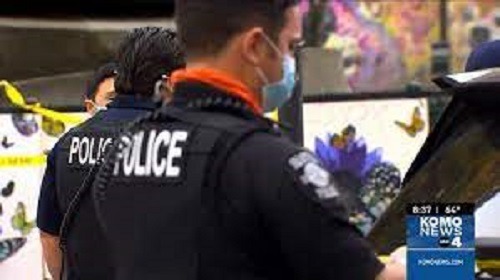
6.21.22 – KOMO
The Seattle Police Department has created a “Z-Disposition Action” for 9-1-1 calls that don’t require a police response, as determined by a supervisor. The policy records such calls and is meant to help address a shortage of police officers.
Calls to 911 have reportedly gone unanswered because of a lack of officers on the Seattle Police Department but the city now has a way to track just how often that is occurring for what are considered to be low-priority calls.
As officers are dispatched to calls for help, officials will categorize them based on a variety of factors.
For example, if “someone comes home, their home’s been burglarized and no one’s around so no physical danger,” said Jim Fuda, executive director of the local Crime Stoppers of Puget Sound.
“I know whenever I call,” said Ming Zhou while on a walk at Green Lake Monday. “It’s frustrating if I have a concern and no one gets back to me.”
Officials described the new protocol during a June 14 meeting of the Seattle City Council’s Public Safety Committee.
“Those calls will accumulate in a queue until a supervisor can get to them,” said Greg Doss, a council Central Staff member.
The City Council discussed the matter during a recent committee meeting.
There could be a delay if officers are responding to something more urgent, like a violent crime or burglary in progress.
“These are concerns from the public and people in the community,” Zhou added.
Officials say a supervisor will ultimately decide whether the call gets a response or cleared with what they’re calling a Z-Disposition Action. That call doesn’t get answered, but it is recorded.
“In future briefings that I give to you we will hopefully be able to display a table that shows you the number of Z-Disposition calls, calls that were essentially not answered by SPD due to a lack of resources,” Doss said.
Fuda said having this data could help police make their case to the City Council about adding more deployable officers to the streets.
“At the state it’s getting now where SPD has 40 percent less deployable officers, is that it’s necessary,” Fuda said.
During those committee meeting, City Council member Alex Pedersen urged officers to stay here in Seattle to help reduce response times.
The next meeting is scheduled for June 28 when officials will discuss what calls could be answered by agencies other than 911 dispatchers.
